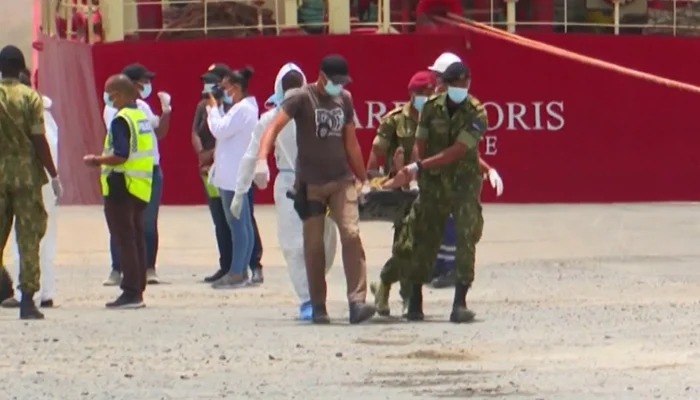More than 60 migrants are feared to have lost their lives after a boat carrying them was found capsized near the Cape Verde peninsula of Senegal in West Africa.
BBC reported that more than 38 people — including children — were rescued from the island of Sal in Cape Verde. Footage from the scene after their arrival shows many were carried ashore on stretchers.
It is believed that the majority of passengers on the boat — which spent more than a month at sea — are Senegalese citizens. However, reports claim that some also hail from Sierra Leone and Guinea-Bissau.
Following the tragic incident, Cape Verde officials have requested global action to help prevent additional migrant deaths.
The vessel was first spotted on Monday, police told the AFP. Initial reports suggested the boat had sunk but it was later clarified that it had been found drifting.
A Spanish fishing boat saw the wooden pirogue-style capsized boat some 320 kilometers (200 miles) off Sal, in the Cape Verde islands, and immediately contacted the authorities, according to the police.
Four children, ages 12 to 16, are among the survivors, confirmed an International Organisation for Migration (IOM) official.
The boat departed the Senegalese fishing community of Fasse Boye on July 10 with 101 people on board, according to survivors quoted by Senegal’s foreign ministry on Tuesday.
Moda Samb, an elected official in the village, told the AFP news agency nearly all those on the boat had grown up in the community and that some local families were still waiting to hear whether their relatives were among the survivors.
The ministry declared that it was coordinating with Cape Verdean authorities to set up the repatriation of Senegalese people.
Jose Moreira, a health official on Sal, said the survivors were improving and were being looked after, with a focus on rehydration and tests for conditions like malaria. Health Minister Filomena Goncalves said, “We know that migration issues are global issues, which require international cooperation, a lot of discussions, and global strategy.
“We all – all the nations – have to sit down at the table and see what we can do so that we don’t lose any more lives at sea, above all.”
IOM spokeswoman Safa Msehli said safe pathways for migration were “sorely lacking” and that their absence gave “room to smugglers and traffickers to put people on these deadly journeys”.
It’s possible that the survivors wound up in Cape Verde, but it wasn’t their original destination.










